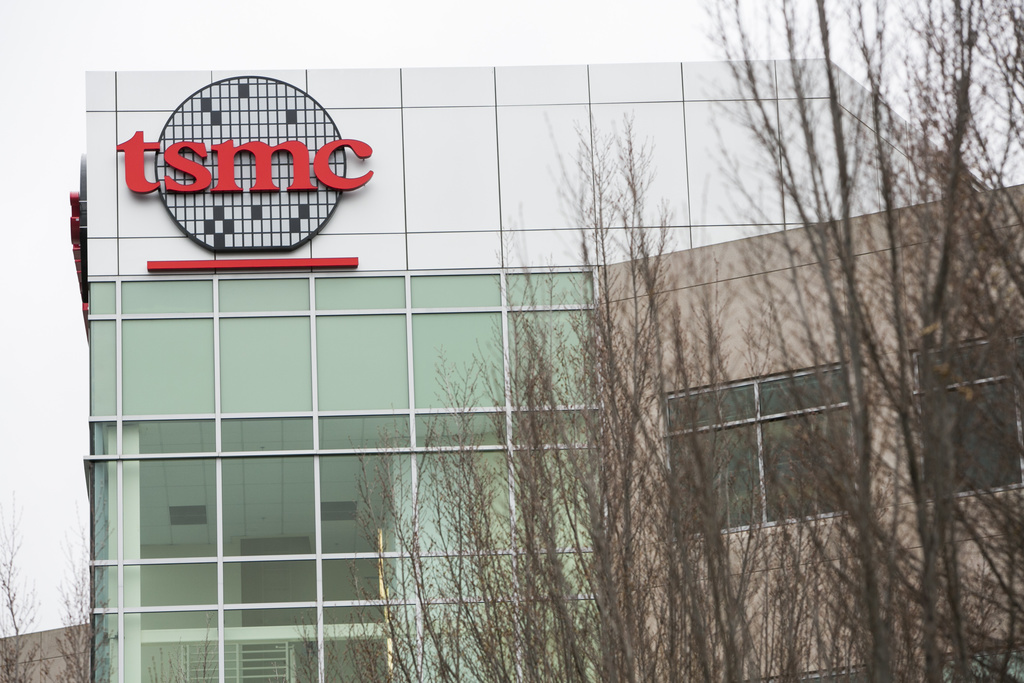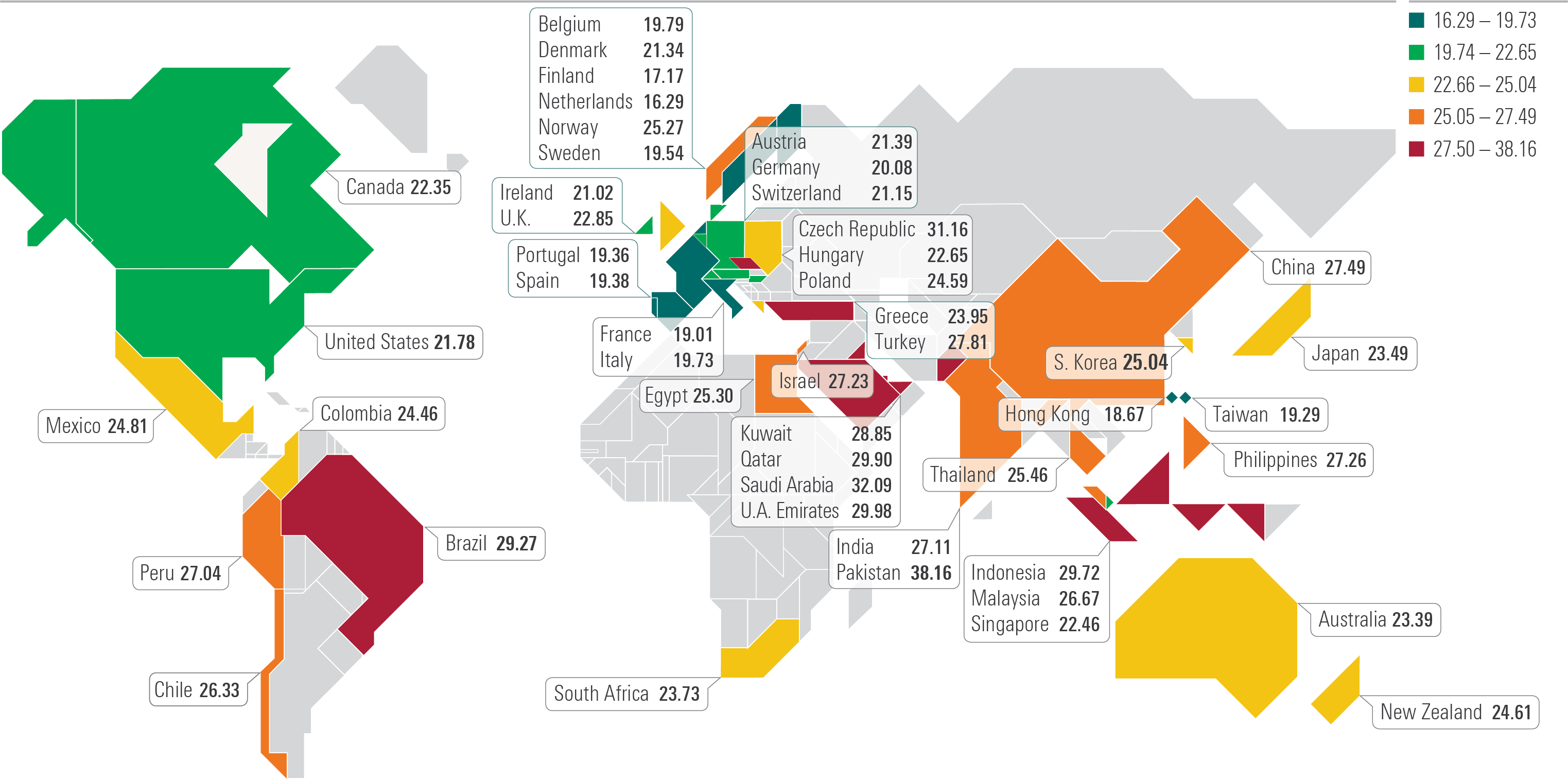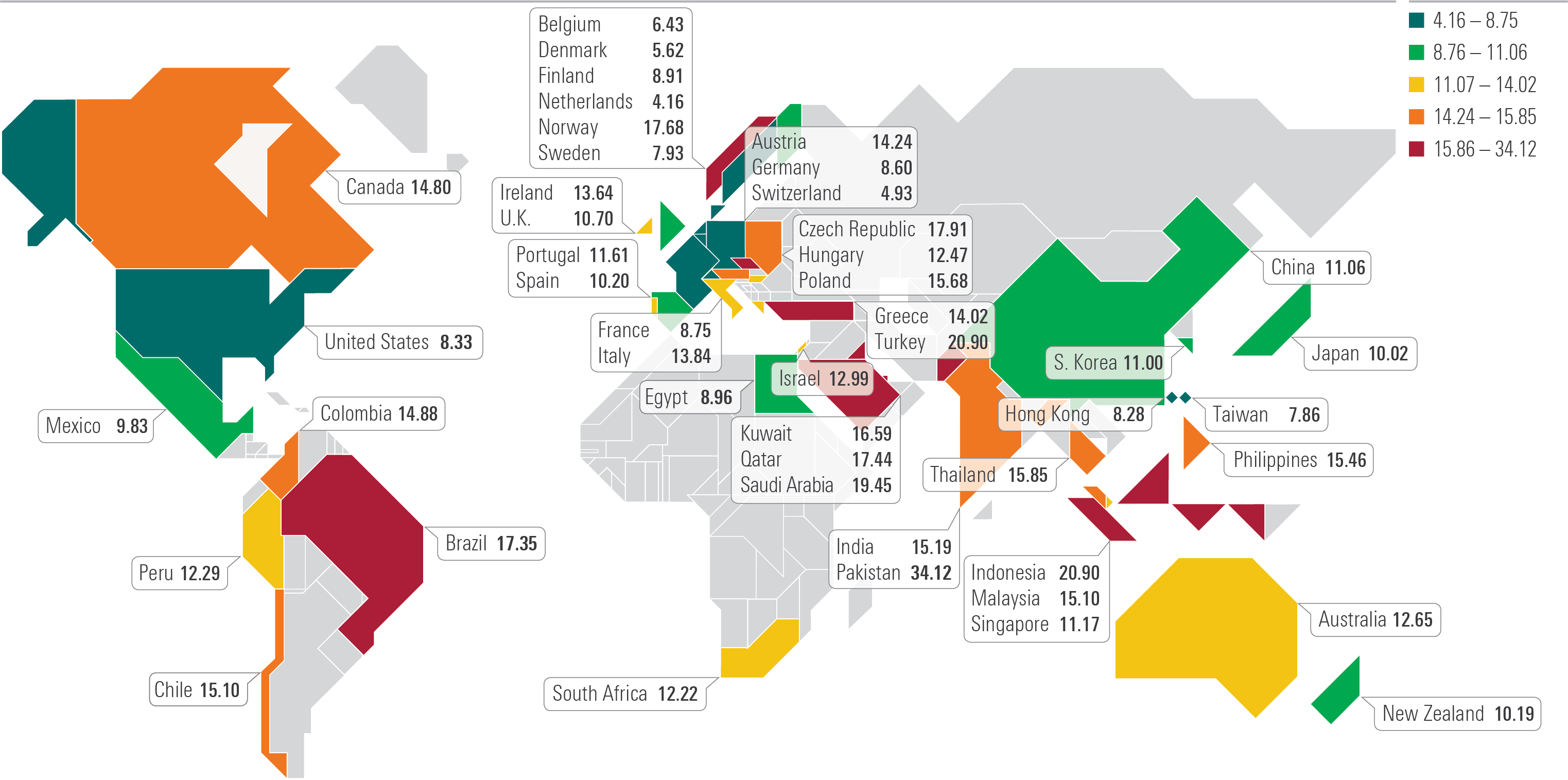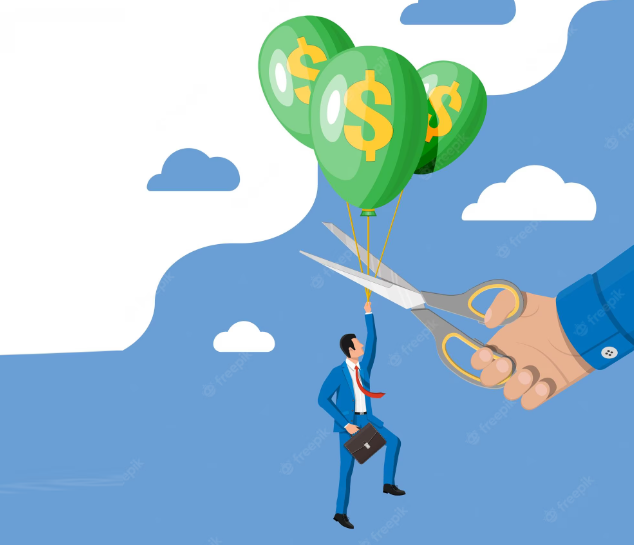
Sustainable investing, and the consideration of environmental, social and governance (ESG) scores has now become mainstream in investing.
Amid the market turmoil caused by the outbreak of the coronavirus pandemic, funds targeting stocks that score well on ESG metrics proved to be a safer haven for investors. More recently, the Russian invasion of Ukraine has sparked much discussion about sustainable investing, and particularly value-based exclusions.
These two major events gave further impetus to a long-standing trend: more and more investors want their investments to make a difference and endorse the view that ESG risk is material.
How do countries around the world compare in this regard? European countries are at the forefront of ESG practices, according to the latest edition of the Morningstar Sustainability Atlas.
Previous editions have already shown that these countries, especially those in the north, always lead the way, but some other countries also appear to have exceptionally strong sustainability profiles.
The Morningstar Sustainability Atlas uses Morningstar country indices to examine the sustainability profiles of 48 country-specific stock markets. Company-level scores come from Sustainalytics, the Morningstar unit that also sets the Morningstar Sustainability Rating for funds. In this piece we highlight some key findings about the ESG practices of countries around the world.
The Netherlands is Top
For the fourth consecutive year, the data shows the Netherlands as the most sustainable equity market in the world, thanks to positions such as ASML Holding, the largest component of the benchmark. Among semiconductor equipment manufacturers ASML is an ESG leader – especially in corporate governance and labour capital.
Finland follows, thanks to companies such as Nokia, a leader in the global technology hardware industry, and Sampo, a major name in the insurance industry. Both have ESG Risk Ratings of “Low”.
Hong Kong moves up one spot from last year and leapfrogs France for third place in the ranking. Insurer AIA Group – by far the largest name within the benchmark – combines low risk exposure with strong management.

Especially notable in this study is Taiwan, which moves from 11th place in 2022 to fifth place in 2023, thanks to the major role of Taiwan Semiconductor Manufacturing Company, a global ESG leader.
Ranking 16th out of 48th is the United States. On the one hand, companies like Apple, Nvidia, UnitedHealth Group and Visa are considered leaders in sustainability, but on the other hand, the ESG risks for big names are Amazon, Meta and ExxonMobil. In most of these cases the lower scorings come as a result of controversy.
For example, Amazon has faced worker strikes and allegations of poor working conditions in Germany, France, and the UK. It has also been involved in a variety of controversies, most notably the antitrust investigation launched by the European Commission (EC) in July 2019 over the company's dual role as a retailer and marketplace. In 2020, the company received a lot of criticism for how it handled the early stages of the coronavirus pandemic, especially towards warehouse staff.
Tesla has moderate ESG risk, but a significant level of controversy. According to Sustainalytics, Tesla's human capital and product management risk management has significant shortcomings. Tesla has also been involved in repeated incidents regarding delivery time for its cars, the safety of its autonomous driving technology, and human resource management. In addition, tweets from chief executive Elon Musk influencing its stock price remain a corporate governance concern.
China is in 39th place out of 48, falling nine positions compared to 2021. Internet giant Tencent is the largest name in the index, followed by Alibaba. Both companies have an ESG Risk Rating of medium and are disturbingly involved in controversy. Two major names, Industrial and Commercial Bank of China and Bank of China, have high ESG Risk Ratings.
Countries With the Lowest CO2 Risk
Climate change remains an important part of the picture. Mark Carney, United Nations Special Envoy for Climate Action and former Governor of the Bank of England, has called the move to net zero the "biggest commercial opportunity of our time". But that transition also means investors must take steps to protect their portfolios from climate risk: some investments will be penalised by the transition to net zero, while others will be vulnerable to physical risks from extreme weather events.
Indeed, climate change can pose a threat to companies' physical assets or business models. They can be influenced by policies or regulations aimed at reducing greenhouse gas emissions; their fossil fuel assets may become worthless – a so-called “stranded asset” – or the changing perception of public opinion may damage their brands. We use the Morningstar Portfolio Carbon Risk Score to assess the extent to which a company's value is threatened by the transition to a low-carbon economy.

Northern European markets such as the Netherlands, Switzerland, Denmark, Belgium, Sweden and Germany have the lowest CO2 risk. The US also scores very well, ranking eighth out of 48. Due to the tilt in technology and healthcare and minimal exposure to energy and utilities, only a small portion of the listed corporate landscape is at risk of depreciation. A notable exception is Berkshire Hathaway, which is assigned a high carbon risk in Morningstar's analysis using Sustainalytics data.
According to Sustainalytics, given the distribution of its investments and its size, Berkshire is significantly more exposed to risks related to ESG integration processes and responsible investing than peers. In addition, Berkshire is also indirectly exposed to ESG risks through its holdings in several companies, particularly in the financial, consumer goods, energy and industrial sectors.
Hong Kong, one of the most carbon-intensive stock markets, has a Portfolio Carbon Risk Score of Low and is in the first quintile. Large companies and major carbon emitters such as industrial conglomerate CK Hutchison Holdings, utilities CLP Holdings and Power Assets Holdings, as well as Galaxy Entertainment Group, are given a Carbon Risk Rating of medium by Sustainalytics. Even though they are naturally exposed to a high CO2 risk, they are able to manage this risk through appropriate policies.
At the other end of the spectrum is Pakistan, with nearly 60% of its market capitalization in energy, utilities and commodities. It therefore has the world's highest Portfolio Carbon Risk Score. The energy-heavy markets of Saudi Arabia, the Czech Republic and Qatar also carry significant CO2 risk scores in the portfolio.













.png)











